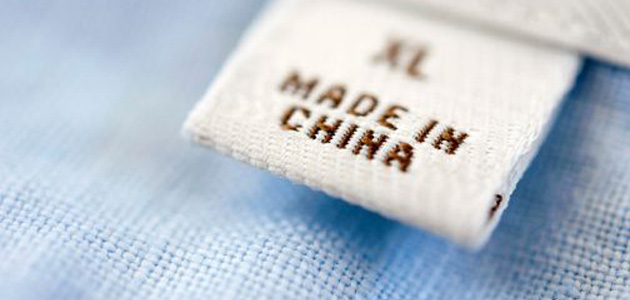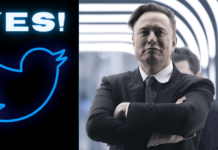
Cruise the aisles of nearly any retail store and it is not difficult to be fascinated, and a little repelled, by all of the products ‘Made in China.’ Like it or not, most of us have gotten used to it as the cost to produce there is difficult to beat.
But look closely and you may see that ‘Made in China’ label is starting to indicate something distinct as well: the end of an age. While Chinese-made goods aren’t going to vanish from a Walmart near you, the leaders of the nation understand that it is no longer enough spit out more, low-cost consumer goods for the world marketplace just to crank the economy up another notch.
That fundamental fact is tied to internal economic policy, as well as the personal liberty of its own citizens, to almost everything China is doing now; from its strategy, to the rough and tumble Communist Party politics.
When he became party leader in 2012 and president the following March, Xi Jinping faced several huge problems. However, he’s by no means a closet democrat nor just a reformer. Despite the hopes in the West, he likely never was. Plus, the market was slowing from its torrid rate. Now, the goal of this year is a 7 percent increase — enormous by Western standards, but lower by China’s.
The old system is beginning to run out of steam and the poor international market has not helped. Other officials, as well as Xi, understand that they need to quickly come up with a brand new version. It will need to keep the country growing but at a slower, more sustainable speed to keep the party’s stewardship of it, as well as Chinese citizens invested in the system.
It will need to take on the strong and generally ineffective state-run businesses. It will need to be cautious about further degrading the water, the atmosphere and land, and it has to focus on making products that the Chinese also need to purchase; not only low-cost consumer goods, but higher-end items appealing to the country’s wealthy. China should create foreign markets, in addition to a national marketplace.
All this will be extremely disruptive, particularly for a political system which has evolved very little as the market changed. China is a tough area to regulate in the best of conditions, so Xi likely would not be showing it around now, even if he were inclined.
Instead, he is striving to get Chinese to close ranks on the other side of him, and the party, for the bumpy ride. We see a demanding anti-corruption effort to cleanse the party, which generally appears to be aimed at his political opponents. The most recent goal is a former Politburo member, Zhou Yongkang. There’s more room for nationalism, including projecting military power and territorial claims into the waters south and east of China, rattling Japan and several other countries.
The ‘Great Firewall,’ which limits internet access to sensitive websites and subjects, is becoming higher and heavier, and room for political discussion is narrowing; the latest objectives are the universities in China. It is sufficient to make some analysts stress that China is really beginning to close itself off from the planet, with possibly catastrophic results.
But Xi does appear to need to have it both ways: take great advantage of the world’s know how, resources and markets, if they can be consistent and useful with party orthodoxy, and seal away the nation from the remainder. It is, however, not quite that easy. They cannot miscalculate here … have an injury there … or a world-wide disaster at an inopportune moment.
Beijing increasingly seems to be walling China away from the exterior world, with possibly devastating results. Or take a look at the web, now they’re interrupting technologies like virtual private networks, that the technology experts and foreign businesses in China rely on to get to websites that are abroad.
China is drifting away from the reform course that was set in the late 1970’s. Previously, China opened to the planet, and supported its citizens to find knowledge abroad. Now, Chinese leaders are calling for it to return to its own past. However, what ‘past’ do they need to return to?
Historically, the most glorious ages in China have been its most open ones. China grew rich from commerce and innovation boomed: the navigational compass, paper currency as well as gunpowder were devised in this period. Emissaries from nearby states funneled into China, Chinese writing was embraced by Japan and modeled its first capital following the Tang imperial court.
Culture flowed the other way also: music and dancing were imported from Central Asia, and beliefs including Buddhism entered from India. These fused with the native customs in China to eventually become essential portions of a lively cultural and intellectual tradition.
Then there are the other ages, when imperial rulers that are paranoid cut China off from the surface and lashed out at foreign influences. But they turned inward. They embraced a narrow ethnic self-concept. Western missionaries, and subsequently Soviet advisers, were expelled by Communist leaders. China withdrew back into glorious isolation.
Such measures helped their iron grip strengthens over society, however it crippled China. The Ming fleets that had started to explore the Indian Ocean were called back and cut up for scrap and as the industrial and scientific revolutions rippled through Europe, China fell behind.
Now, the leaders in China have started to tentatively guide their country down a similar route. They may go even further… confronted with a fidgety society, they might expel even more foreign journalists, further impede imports, sharpen assaults on ‘foreign’ religions like Christianity and Islam, and stiffen their suppression of Uighur identity in Xinjiang province.
And when populist rage starts to seethe over a slowing market and widening split between poor and rich, the authorities could redirect it at economical elites and liberal intellectuals to direct it away from essential party officials.
But when they do all this, the consequences will likely be disastrous. It’d match Chinese citizens against one another, it will weaken China’s influence abroad and would shut down initiation and it’d turn on the leaders a number of whom see this risk all too clearly in China, and are in private hedging against it by stashing their riches and children abroad. In a nutshell, it’d replicate exactly the same mistakes that generations of Chinese leaders that are educated, including Communist luminaries like Deng Xiaoping, have sought to escape from.




